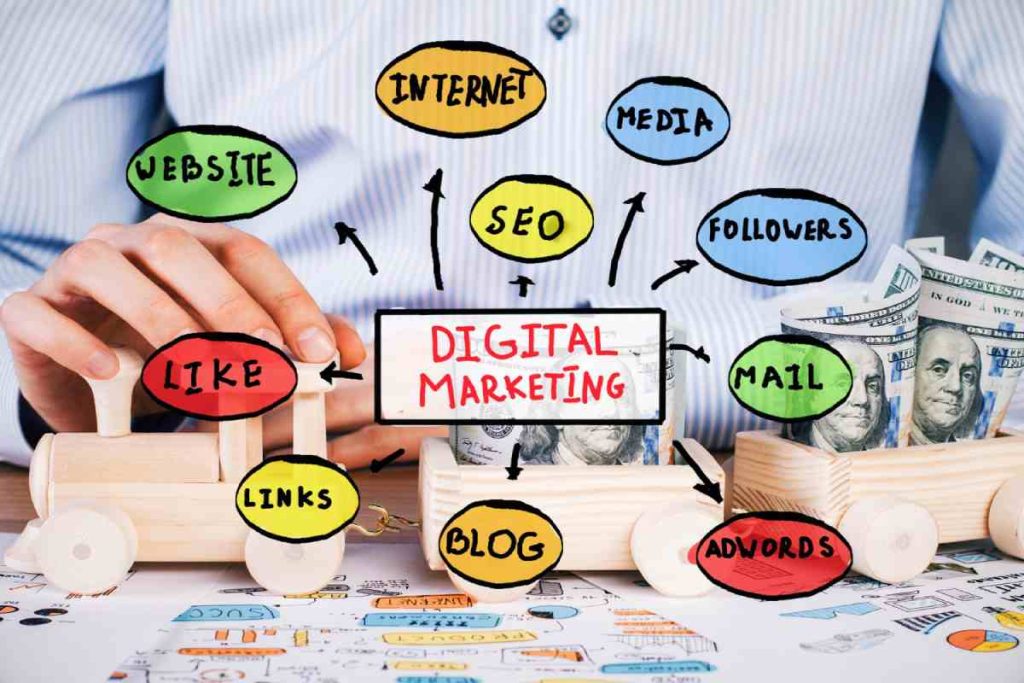Whether you’re a business owner, freelancer, or aspiring entrepreneur, understanding Digital Marketing is essential for growth. From SEO strategies to social media campaigns, digital marketing covers all the ways you can reach your audience online. In this guide, we break down the basics into simple, actionable insights so you can confidently begin your digital marketing journey.
What Is Digital Marketing?
Digital Marketing refers to any form of marketing that uses the internet or electronic devices. It includes channels like social media, search engines, email, and websites to connect with current and potential customers. Unlike traditional marketing, digital strategies offer real-time data and measurable results, allowing businesses to adjust and optimize continuously.
Why SEO Matters in Digital Marketing
Search Engine Optimization (SEO) is a core part of digital marketing. It focuses on improving your website’s visibility in search engine results. When your content ranks higher, more people see it — leading to more traffic and sales. By using the right keywords and structure, SEO helps you connect with users actively searching for your product or service.
Social Media Simplified
Social media platforms like Facebook, Instagram, LinkedIn, and TikTok are essential tools in any Digital Marketing strategy. They allow businesses to build brand awareness, engage with customers, and promote offers. Posting consistently, using hashtags, and interacting with your audience can build brand trust and long-term relationships.
Email Marketing Basics
Email remains one of the most effective digital marketing channels. It allows for direct, personalized communication with your audience. Whether it’s a welcome series, a newsletter, or a product promotion, email marketing drives repeat business and helps maintain customer loyalty. Tools like Mailchimp or ConvertKit make automation simple and scalable.
Content Marketing Explained
Content marketing involves creating valuable, relevant content that attracts and retains an audience. This could be blog posts, videos, infographics, or podcasts. The goal is to provide value before asking for anything in return. When done right, content marketing improves your SEO performance and positions you as an authority in your field.
Paid Ads in Digital Marketing
Pay-per-click (PPC) advertising allows you to show ads on platforms like Google, Facebook, or YouTube. You only pay when someone clicks on your ad, making it a cost-effective way to drive traffic. With the right targeting and message, paid ads deliver immediate visibility and can scale your marketing efforts quickly.
Measure and Improve Your Strategy
No digital marketing effort is complete without tracking performance. Use tools like Google Analytics, Search Console, and social media insights to evaluate your efforts. Monitor traffic, conversions, bounce rates, and engagement. This allows you to identify what works and optimize campaigns for better return on investment.
Conclusion
Digital Marketing doesn’t have to be overwhelming. With the right mindset and tools, anyone can create effective online strategies. Start small, stay consistent, and focus on what brings value to your audience. From SEO and email to social and paid ads, digital marketing offers powerful ways to grow your business in the modern world.
Frequently Asked Questions
What is digital marketing?
Digital marketing is promoting products or services through online platforms and digital channels.
Do I need SEO for my website?
Yes. SEO helps your site rank higher on Google and attracts organic traffic over time.
Which social media platform should I use?
Choose the one where your audience spends the most time, such as Instagram, Facebook, or LinkedIn.
How often should I send marketing emails?
Start with once per week and adjust based on engagement and unsubscribe rates.
Is content marketing worth it?
Yes. Content builds trust, supports SEO, and positions your brand as an expert.
Can I do digital marketing myself?
Absolutely. Many tools and resources are available to help beginners learn and grow.
How much should I spend on paid ads?
Start with a small budget, test different audiences, and scale what performs best.
How do I know if my strategy is working?
Track metrics like traffic, conversions, engagement, and sales using analytics tools.
Do I need a blog for digital marketing?
A blog helps improve SEO and provides valuable content that attracts your target audience.
Is email still effective in 2025?
Yes. Email remains one of the highest-performing channels for engagement and ROI.







